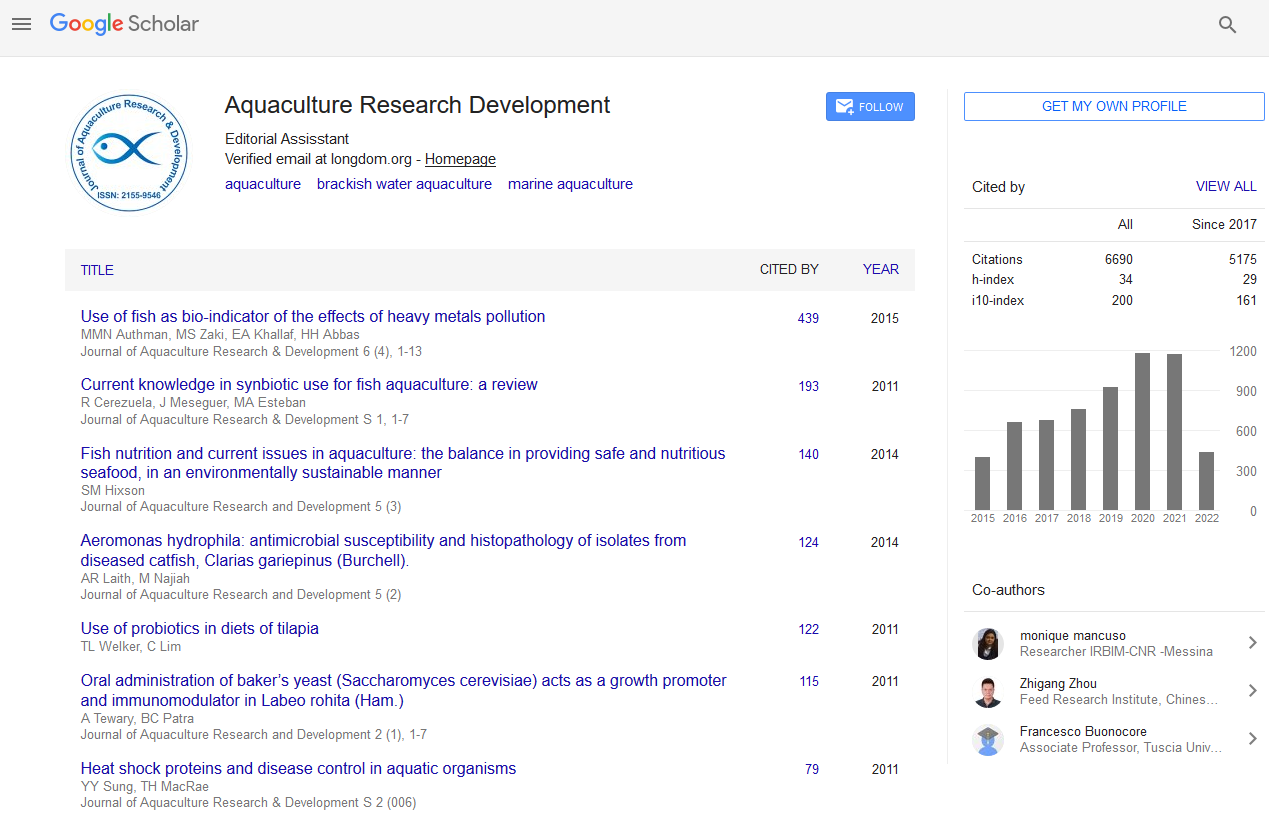PMC/PubMed Indexed Articles
Indexed In
- Online Access to Research in the Environment (OARE)
- Open J Gate
- Genamics JournalSeek
- JournalTOCs
- Scimago
- Ulrich's Periodicals Directory
- Access to Global Online Research in Agriculture (AGORA)
- Electronic Journals Library
- Centre for Agriculture and Biosciences International (CABI)
- RefSeek
- Directory of Research Journal Indexing (DRJI)
- Hamdard University
- EBSCO A-Z
- OCLC- WorldCat
- Scholarsteer
- SWB online catalog
- Virtual Library of Biology (vifabio)
- Publons
- MIAR
- University Grants Commission
- Euro Pub
- Google Scholar
Useful Links
Share This Page
Journal Flyer

Open Access Journals
- Agri and Aquaculture
- Biochemistry
- Bioinformatics & Systems Biology
- Business & Management
- Chemistry
- Clinical Sciences
- Engineering
- Food & Nutrition
- General Science
- Genetics & Molecular Biology
- Immunology & Microbiology
- Medical Sciences
- Neuroscience & Psychology
- Nursing & Health Care
- Pharmaceutical Sciences
The Brazilian striped mullet project: The chronicle of a kiss of death and weak government administration
3rd International Conference on Aquaculture & Fisheries
September 29-October 01, 2016 London, UK
Joao P Vieira
Federal University of Rio Grande, Brazil
Posters & Accepted Abstracts: J Aquac Res Development
Abstract:
The Mullet Project" started in 1979 at Patos Lagoon Estuary (~ 1,000 km²) and now covers the southern population (Argentina to São Paulo) of Mugil liza Valenciennes 1836. The species is distributed along the coast of South America, from the Caribbean Sea to Argentina, and has historical and cultural importance to the southern and southeastern region of Brazil (12% of the total range), were is more abundant. The project provides the genetic stock identification of the southern population, and also reveals that the species has a relatively low population growth rate (k=0.17/year), maximum observed longevity of approximately 10 years, late sexual maturation (5.5 years) and high fecundity and spawns in large aggregations. There are strong evidences that this population is overexploited and the stock seams to be on the edge of collapse especially due to fishing on the reproductive migration period (high value of the roe - Botarga). Since 2004 M. liza was ranked as overexploited. There is a huge concern about the sustainability of this stock forcing authorities to build fishing restrictions which shows to be impropriated, not effective, systematically transgressed and apparently not sufficient to ensure the maintenance of population abundance in southern Brazil. There is therefore a clear need for management, but the Brazilian State is either connived to the excesses as unable to control the fisheries.
Biography :
Email: vieira@mikrus.com.br


